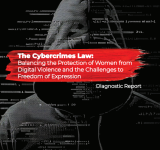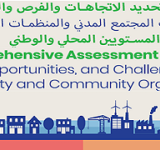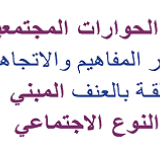The Justice Deficit for Women in Jordan: A Case Study of Violence and Harassment in the Workplace
The report describes the overarching barriers to justice faced by women and girls in Jordan,as well as focusses on a case study of VAWG in the workplace. This is based on research with 2,423 women and men (over 8% of which were women),plus 11 key stakeholders across lawyers,legal aid organizations,trade unions,women’s rights organizations and frontline VAWG workers. The findings were analyzed through participatory processes to develop key recommendations with broad based support.
The research highlights that the justice deficit stems from a certain configuration of social norms,policies,laws and their implementation. Access to justice is not just about ensuring VAWG is sufficiently recognized and how women and girls experience their application first-hand. In the context of Jordan,the legal framework has progressed towards providing justice for women and girls affected by VAWG. Still,there remain areas for improvement in terms of clarifying the legal framework to society and even justice sector professionals. Further,there remains a lack of clarity in several terminologies in the law and the articles that can be used in cases of VAWG. These contribute to a significant implementation gap. This research finds that it is the women’s rights movement in Jordan that has been critical to highlighting this gap and to driving legal and normative change in support of justice for women and girls.
Some of the research findings are: one in five women experienced one or more forms of VAWG in the workplace; the more precarious the work,the higher the risk of violence and harassment; nearly the third (29%) of women kept silent about the violence and harassment they experienced.


